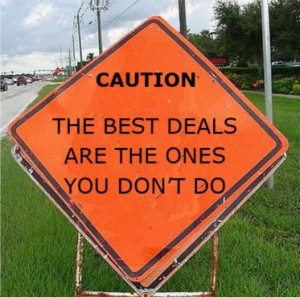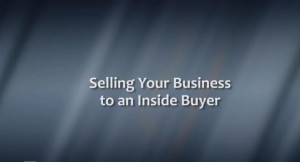
Posts Tagged "CEO"
2021 CEO Summit (Virtual)

What do the US elections and the global pandemic mean for the economy, your company and your wealth in 2021? Register for free to join NAVIX founder and CEO Patrick Ungashick, as he and a panel of experts present their insights, followed by a keynote presentation by Brian Beaulieu, Chief Economist of ITR Economics. For the first time in its more than 15 years, the annual CEO Summit will be held virtually. Registration is complimentary as our guest.
When: Wednesday, February 3, 2021 from 1:00pm to 3:00pm EST
Topics covered will include:
- Strategies for your business in 2021
- Potential tax reform
- M&A markets & company valuation updates
- PPP loans and impact
- Exit strategies
Space is limited, so please register today. Registrants will receive a Video Link to this private virtual event.
Register Now
Contact Tim 772-221-4499, to discuss strategies for your business.
New Survey What It Feels Like to be a CEO Offers Exit Planning Insights
A newly released survey explores the human side of being a company’s chief leader and offers insights for CEOs and business owners on the challenges involved in getting themselves and their companies ready for exit or success.

The survey, The CEO: A Personal Reflection, was prepared by global leadership consulting firm Egon Zehnder. Over four hundred CEOs from a cross section of industries and countries participated. Topics addressed included what the job entails, the level of preparation CEOs felt they had received before taking the role, their succession planning process, and how CEOs lead and cope in these volatile times.
While the study addresses a wide range of themes and issues, it reveals some important insights that CEOs and business owners should take heed of as they move towards a future exit. For example, the study revealed that one in three CEOs (32%) indicated succession planning was underway with a clear process being followed. Almost half (44%) of the CEOs responded that either no succession planning had been initiated but needed to be, or some planning was underway but without a clear process or outcome.
The research study’s examination of CEO expectations versus reality should serve as an alarm bell. This section asked CEO participants which of their roles had turned out to be easier or more difficult than expected. Listed below are the top five roles that CEOs found more difficult than expected, along with the percentage of survey respondents who indicated so:
Driving cultural change – 50%
Finding time for myself and for reflection – 48%
Developing my senior leadership team – 47%
Balancing the short-term financial focus with the longer-term transformation of my company – 40%
Managing the impact on my family / personal life – 35%
As you review this bullet point list, consider what it takes to plan for and achieve successful exits: driving cultural change, personal time and reflection, building the team, transforming the company, and addressing the impact on one’s personal life. In other words, every one of the top five roles that CEOs found more difficult than expected are essential steps within the process of preparing for exit and reaching one’s exit goals.
It’s also important to note that about 80% of the CEOs participating in this survey lead organizations with revenue of $1 billion or greater. Most privately held companies are significantly smaller, and thus have flatter organizations with fewer leaders and arguably more demands on the CEO. Thus, if about one-half of these CEOs from very large companies found these roles to be harder than expected, C-level leaders and owners in small to mid-sized companies could reasonably expect to have even greater difficulties.
This survey’s findings point to the key theme in how to be successful at exit—start preparing as soon as possible. Now is best. Many owners and CEOs wait too late to get started and deny themselves sufficient time. If you desire to exit in five years or less, you are already in the final stretch and there’s likely a lot to get done.
Visit the Egon Zehnder website to learn more about this study and download a copy of the full report. Also, download our free ebook “Your Last Five Years: How the Final 60 Months will Make or Break Your Exit Success” to get started with your exit planning.
To discuss your unique business, and how to plan for and achieve a successful exit, Call 772-210-4499 or email Tim to schedule a confidential, complimentary consultation.
The 12 Steps Required to Successfully Sell Your Business to an Inside Buyer
Once you decide that your exit strategy is selling your business to an inside buyer, we call that being an “Innie”, you need to gear yourself for a successful transition. It is never too early to start the planning process. As buyers, key employees can threaten the success of the sale of your business.
In our experience, there are twelve essential conditions that Innies must meet in order to achieve a happy exit. Download the NAVIX Exit Strategy Checklist- Selling to an Inside Buyer and watch the video below to evaluate how viable selling your business to an inside buyer may be. Use the checklist as a guideline to identify actions that will help you achieve a successful exit using this strategy.
Contact us to learn more about a customized plan for your successful exit – all inquiries are confidential.
Watch the video below and download the complimentary case studies.
For more information on this subject, read these two case studies:
An Exit Planning Case Study: Third Time is the Charm
An Exit Planning Case Study: The Best Deals are the Ones You Don’t Do
Contact us to learn more about planning and achieving your own happy exit.
The 12 Steps Required to Successfully Sell Your Business to an Inside Buyer 7 2016
Workshop – 15 Steps to Achieving a Happy Exit from Your Business – May 11, 2015
I’m not ready to leave my business yet – why should I worry about exit planning?
Ideally, exit planning starts when your business does. The longer you wait, the more likely you will have to deal with things that you wish you had done, or not done, along the way.
Waiting to strategize your exit means that you don’t know if today’s business decisions will help or hurt success at exit.
Ask yourself “Is my business ready for me to exit today?” If not, why not? The answer is usually a weakness in the business. Exit planning, in no small measure, is about strengthening the business. Planning for tomorrow’s exit creates a better business today.
Please join us for a free workshop – click on the link below for more information and to RSVP.
Micro targeting for massive growth – Vistage 2015 Trend Report – Part 2
Marketing is the second section of five strategic areas for growth in the Vistage Executive Street 2015 forecast.
From the report: “ …smarter, more well informed and resourceful consumer who is empowered with information at their fingertips”
2015 Marketing Checklist –
- Optimize your online experience.
- Use social media to build your brand’s presence and credibility with its target audience.
- Narrow your focus to reach your true target market.
- Make sure your site is mobile friendly.
So what’s in your 2015 marketing game plan?
Download the report here:
Remember these steps to get better results:
- Schedule time to read the report when you can be focused and fully present.
- Jot down a few ideas and goals that are applicable to your company.
- Share the report, your ideas and goals with your team.
- Ask them how you can help them achieve the goals.
- Hold them accountable for results.
Unflinching small business optimism.
A survey of 713 small business CEOs found that optimism among small
firms has remained virtually unchanged for the past four months, and
has been at its highest level since the survey began in June 2012. The
WSJ/Vistage Small Business CEO Confidence Index was 115.5 in the
February 2015 survey. This reading is identical to January’s reading and
nearly equal to December’s 115.0 and November’s 115.6. The steadfast
optimism indicates that small business CEOs hold a deep sense of
confidence about prospects for the U.S. economy.
The small changes in the components of the Confidence Index pale
in comparison to the stability of optimism, which remains at record
high levels. This renewed sense of confidence has not wavered despite
uneven news on the domestic and global economies. Nor has it yielded
to weather-induced losses due to the harsh winter as it did last year.
Overall, the data indicate that small businesses expect a stronger
economy, and as a consequence, a tighter labor market during the year
ahead. This will result in continue upward pressures on wages as well as
draw more idled workers into the labor force.
5 Ways to Fuel Massive Growth in 2015 – #1 TECHNOLOGY
The Vistage 2015 forecast for growth is full of ideas, strategies and tactics to help grow your company in the year ahead. It was released at the beginning of the year along with hundreds of other business and personal improvement lists to kick off 2015.
Can there be too many good ideas? Unfortunately, the answer is yes. Too many ideas can confuse your focus and rob you of direction, leading to inactivity. The New Year plethora of idea lists usually follows the same track as gym memberships – energized in January, forgotten by February.
The key to progress is continuous improvement. It needs to be focused and manageable.
So, let’s try something new. Now that we are away from the New Year noise we can explore the forecast one section at a time.
Try these steps to get better results:
- Schedule time to read the report when you can be focused and fully present.
- Jot down a few ideas and goals that are applicable to your company.
- Share the report, your ideas and goals with your team.
- Ask them how you can help them achieve the goals.
- Hold them accountable for results.
Here is the first section of five strategic areas for growth in the Vistage 2015 forecast.
Technology –
Key points:
- Embrace the Internet of things.
- Get your head in the cloud.
- Make big data a big deal.
Click the link for the full Technology report.
Confidence Rises as Summer Season Ends – WSJ/Vistage Small Business Confidence Index
3q14 small business confidence
3q14 small business confidence detail
Optimism among small firms in the September survey rose to its
second highest level since the survey first began in June of 2012. The
WSJ/Vistage Small Business CEO Confidence Index was 110.8 in the
September 2014 survey, up from 109.8 in August and posting a 5.2%
gain from last year’s 105.3. The steady improving level of confidence in
recent months is certainly good news, but the more important finding
is that since the start of the year small firms never lost sight of the
underlying strength in the economy.
Optimism Breaks Holding Pattern – Reaches 2-Year High in 3Q 2014
3q2014 Vistage CEO Confidence Index TJK
3q2014 Vistage CEO confidence index infographic
Confidence among CEOs reached its highest level in two years,
finally achieving a lift-off from its favorable holding pattern in the
last three quarters. The Vistage CEO Confidence Index was 103.4 in
the 3rd quarter 2014 survey, up from 101.0 in the 2nd quarter and
97.8 in last year’s 3rd quarter, and the highest level since 105.1 was
recorded in the 1st quarter of 2012. There is no greater indication
of confidence in future prospects than a firm’s willingness to
increase their fixed investment spending and to expand their
workforce. On both counts, firms reported the most expansive
plans since 2006.
Small Business Optimism at Highest Levels Since Start of 2014
WSJ – Vistage-Infographic-0814 TJK
WSJ-Vistage CEO-Survey Summ-0814
Optimism among small firms rose to its highest level since the
start of 2014, with the August reading the second highest since
the survey first began in June of 2012. The WSJ/Vistage Small
Business CEO Confidence Index was 109.8 in the August 2014
survey, up from 107.7 in July and above last year’s 104.2. The
August reading was only slightly below the peak of 111.5 set
in January 2014. All component questions improved in August,
indicating broadly improving conditions. Of particular note was
that small firms were more willing than any time in the past two
years to expand their productive capacity by increasing their
fixed investment expenditures. Plans to add to their workforce
rebounded as did anticipated revenues.


 Tim is a Consultant to Business, Government and Not-for-Profits Organizations specializing in innovative and challenging ways for organizations to survive, to thrive and to build their teams.
Tim is a Consultant to Business, Government and Not-for-Profits Organizations specializing in innovative and challenging ways for organizations to survive, to thrive and to build their teams.